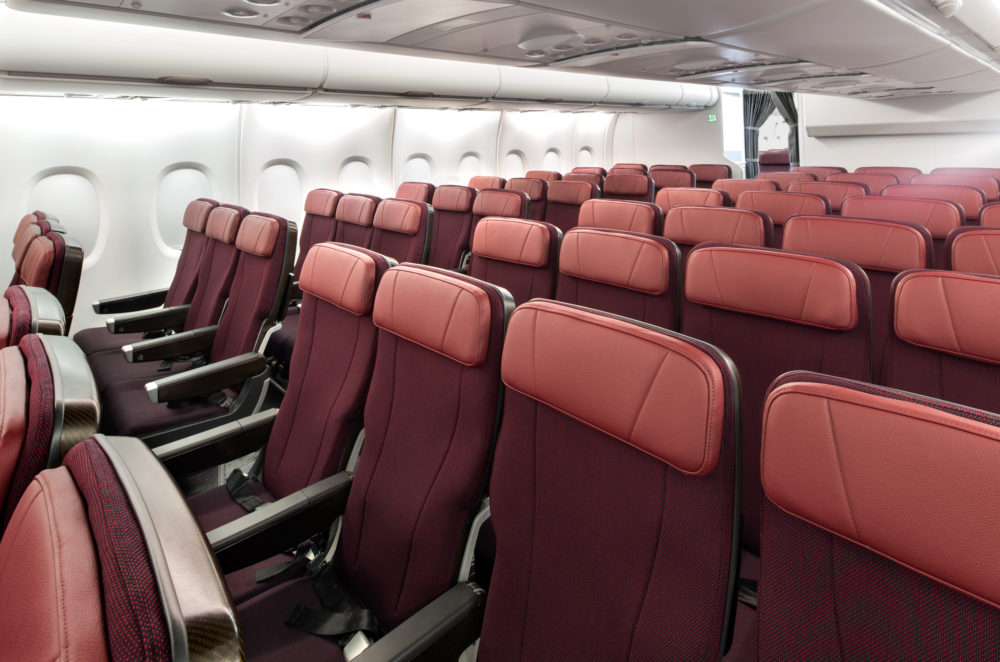Qantas has become the latest airline to state that enforcing social distancing on-board an aircraft is not practical, not in the same way that it is on the ground.
The carrier’s medical director, Dr Ian Hosegood, said that the chances of catching coronavirus on an aircraft is “extremely low” and that social distancing is unnecessary.
Some authorities have floated proposals to force airlines to keep seats unoccupied between passengers, to prevent the spreading of Covid-19.
But IATA has said that keeping middle seats free on planes would incur unnecessary costs for airlines and cause the average air fare to rise.
The aviation trade body said that introducing masks would be adequate protection for all and would avoid “dramatic cost increases”.
Instead of social distancing, IATA has suggested alternative measures including: temperature screening, adjusting boarding processes, limiting movement in-flight, more frequent and deeper cabin cleaning and adjusted catering procedures.
Economic Impact of Social Distancing On-Board
IATA warned that enforcing social distancing on aircraft would slash the load factor down to 62%, well below the average industry break-even load factor of 77%.
Compared to 2019, air fares would need to go up dramatically—between 43% and 54% depending on the region—just to cover costs.
Qantas is rolling out the ‘Fly Well’ programme, which includes a number of temporary measures to protect passengers and crew from Covid-19.
Measures include: contactless check-in, hand sanitising stations at departure gates, social distancing in lounges, masks, enhanced cabin cleaning, sanitising wipes for passengers and limited movement on-board.
The Qantas medical director, Dr Ian Hosegood, said “The data shows that actual risk of catching coronavirus on an aircraft is already extremely low. That’s due to a combination of factors, including the cabin air filtration system, the fact that people don’t sit face-to-face and the high backs of aircraft seats acting as a physical barrier. As far as the virus goes, an aircraft cabin is a very different environment to other forms of public transport”.
“Social distancing on an aircraft isn’t practical the way it is on the ground, and given the low transmission risk on board, we don’t believe it’s necessary in order to be safe.”
Qantas medical director, Dr Ian Hosegood
Qantas Group CEO Alan Joyce said that the airline will monitor the rollout of their measures and adjust them according to medical advice and customer feedback.
Do you believe in Social Distancing when flying in the air? Share your experience on Social Distancing on-board.


